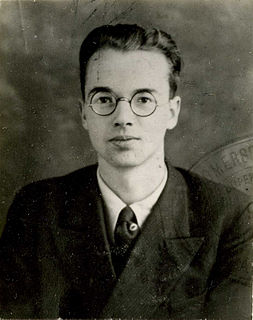A Quote by Lord Byron
What is fame? The advantage of being known by people of whom you yourself know nothing, and for whom you care as little.
Related Quotes
The being who, for most men, is the source of the most lively, and even, be it said, to the shame of philosophical delights, the most lasting joys; the being towards or for whom all their efforts tend for whom and by whom fortunes are made and lost; for whom, but especially by whom, artists and poets compose their most delicate jewels; from whom flow the most enervating pleasures and the most enriching sufferings - woman, in a word, is not, for the artist in general... only the female of the human species. She is rather a divinity, a star.
A FRIEND IS A PERSON . . . With whom you can be sincere. . . . To whom you never need to defend yourself. . . . On whom you can depend whether present or absent. . . . With whom you never need pretend. . . . To whom you can reveal yourself without fear of betrayal. . . . Who does not feel she owns you because you are her friend. . . . Who will not selfishly use you because she has your confidence. I WOULD HAVE SUCH A FRIEND. . . AND I WOULD BE SUCH A FRIEND. I DO HAVE SUCH A FRIEND!
Happy indeed the poet of whom, like Orpheus, nothing is known but an immortal name! Happy next, perhaps, the poet of whom, like Homer, nothing is known but the immortal works. The more the merely human part of the poet remains a mystery, the more willing is the reverence given to his divine mission.
Because God is not only infinitely greater and more excellent than all other being, but he is the head of the universal system of existence; the foundation and fountain of all being and all beauty; from whom all is perfectly derived, and on whom all is most absolutely and perfectly dependent; of whom, and through whom, and to whom is all being and all perfection; and whose being and beauty are, as it were, the sum and comprehension of all existence and excellence: much more than the sun is the fountain and summary comprehension of all the light and brightness of the day.
Here I come to one of the memoir writer's difficulties -- one of the reasons why, though I read so many, so many are failures. They leave out the person to whom things happened. The reason is that it is so difficult to describe any human being. So they say: 'This is what happened'; but they do not say what the person was like to whom it happened. And the events mean very little unless we know first to whom they happened.
Experience has repeatedly confirmed that well-known maxim of Bacon's that 'a little philosophy inclineth a man's mind to atheism, but depth in philosophy bringeth men's minds about to religion.' At the same time, when Bacon penned that sage epigram... he forgot to add that the God to whom depth in philosophy brings back men's minds is far from being the same from whom a little philosophy estranges them.






































